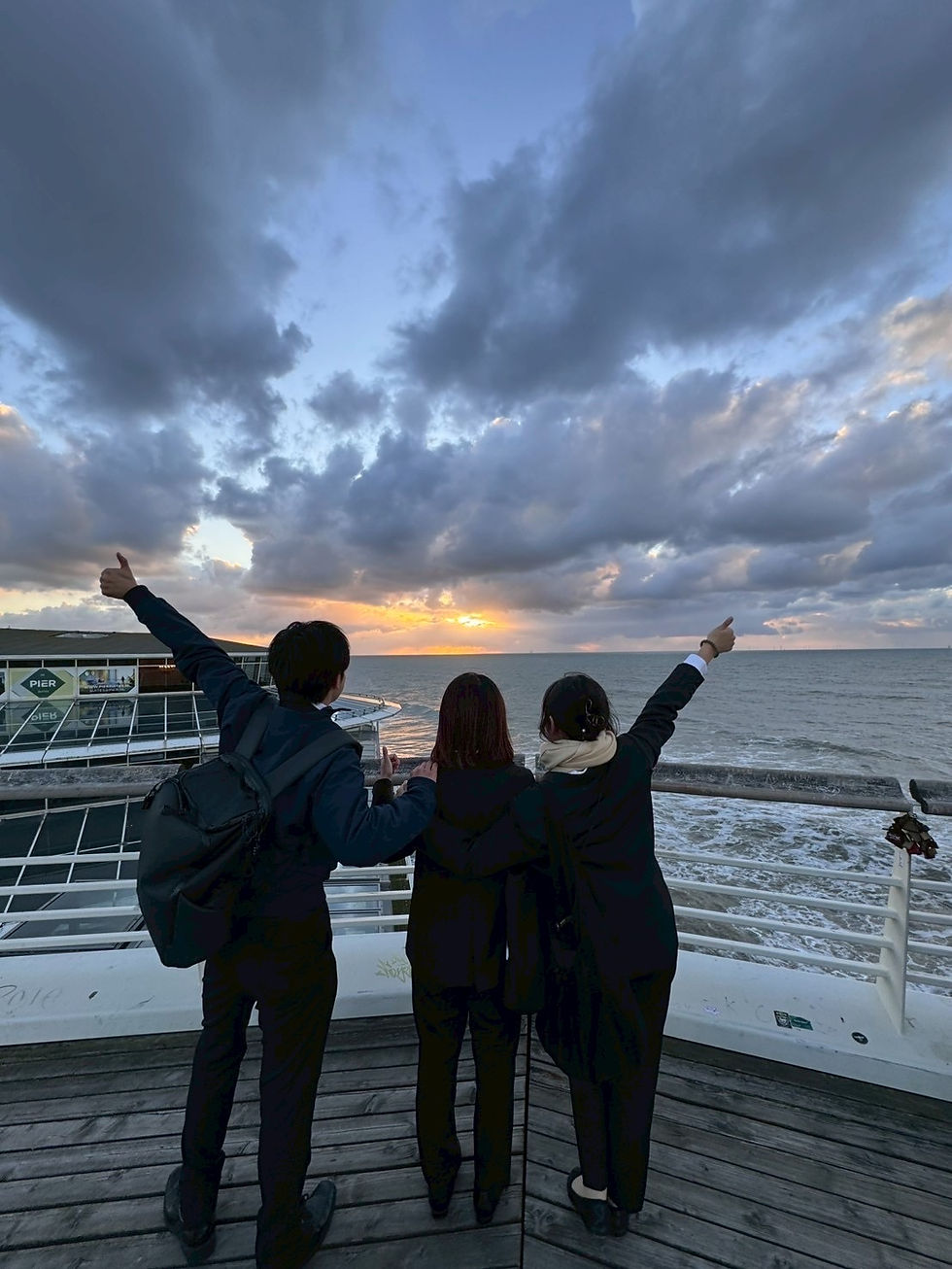Winning the Runner-up Prize in the International Humanitarian Law Role Play Competition, National Ro
- Administrator
- 2023年3月23日
- 読了時間: 3分
Ayaka Sakakibara (M1)
The International Humanitarian Law Role Play Competition held by the International Committee of the Red Cross (ICRC) is one competition in which groups of three from universities compete for the knowledge of International Humanitarian Law (IHL) and how to provide humanitarian assistance in areas affected by conflicts playing a role as staffs of the ICRC and National Societies[1]. Participation in the competition in December 2022 was the fourth challenge for F’s seminar and it was the second one for me. In this essay, I will introduce how we prepared for the competition and what I felt about the actual performance.
Regarding our preparation process, the first step was the prediction of the topics from the fact-sheet[2] provided by the ICRC in July. This step examined the fact-sheet thoroughly so that it covered all the topics that would be discussed in diplomatic meetings, visits to facilities of prisoners of war or internment and so on. The second step was the construction of a strategy to persuade the opposition side and bring compromise or support. The careful expectation of each state’s and organization’s positions would be taken very importantly in this step. If it was wrong, the negotiation would be meaningless. The third step was a collection of relevant laws, including international human rights law and others applied even in peacetime, that is necessary to make arguments in discussions and scrutinize the situation accurately. In addition, we gathered reports of activities having been taken by the ICRC and National Societies in conditions similar to the fictional case. Throughout the three-times-a-week practice for months, the knowledge was piled up, strategies were revised many times and communication among members was brushed up.

The missions delivered in the competition were always beyond our prediction and this time was no exception. The first mission out of three missions was the most challenging time for me. The examiner required us to explain the principles of the ICRC to clear up doubts that the organization took the enemy side of the states we had a meeting with and suggest how to transport people from the zone that was about to be invaded to a safer place. I could not reply to the questions, especially on the latter matter. However, my colleagues kept conversations with examiners playing the role of state officials. They were highly dependable and thanks to them, the failure in the session did not result in me being too much upset. The second and third missions were where our preparations took the fruit. We could lead the negotiation with soldiers at the check-point to the military facility of minors and discussion between the ICRC (played by the students from another university) and the Kissaka Red Cross (fictional National Society, our side).
When the organizer announced my university won the runner-up prize in the last part of the competition, delight and bitter disappointment were mixed in my heart. On the one hand, it was the first winning ever in the competition and proved our efforts were not wrong, but on the other hand, it also proved that our effort was not enough to achieve our goal, the first prize, which allowed us to go to the international round.
Though I am not fully satisfied with the result, the runner-up is certainly given to us, owing not only to Associate Professor Fujii’s advice but also big support from other members of the F’s seminar. I really appreciate it and hope the juniors win the first prize next year.

[1] National Societies are part of the Red Cross and Red Crescent Movement, taking action in each country's territory.
[2] It explains why, where and how the conflict happened, the behavior of the parties concerned and the reaction by other countries, which are completely fictional.




コメント